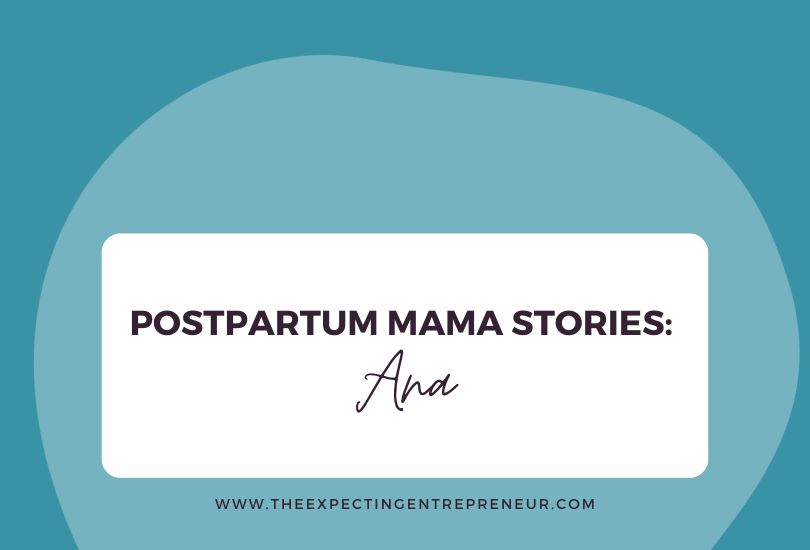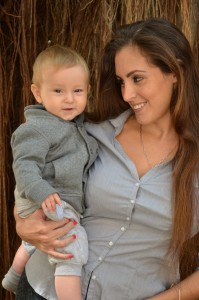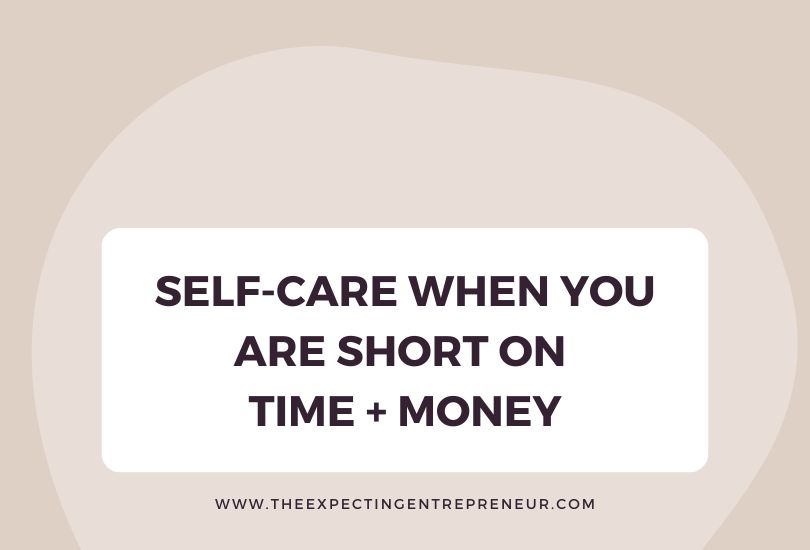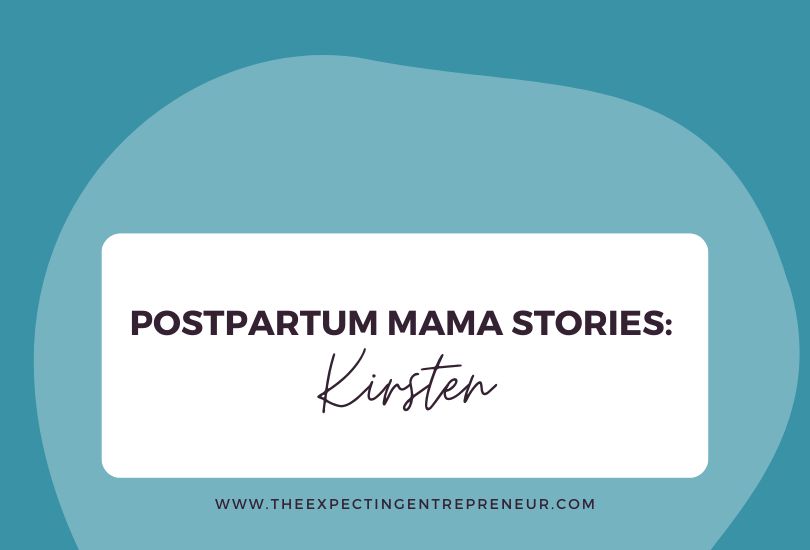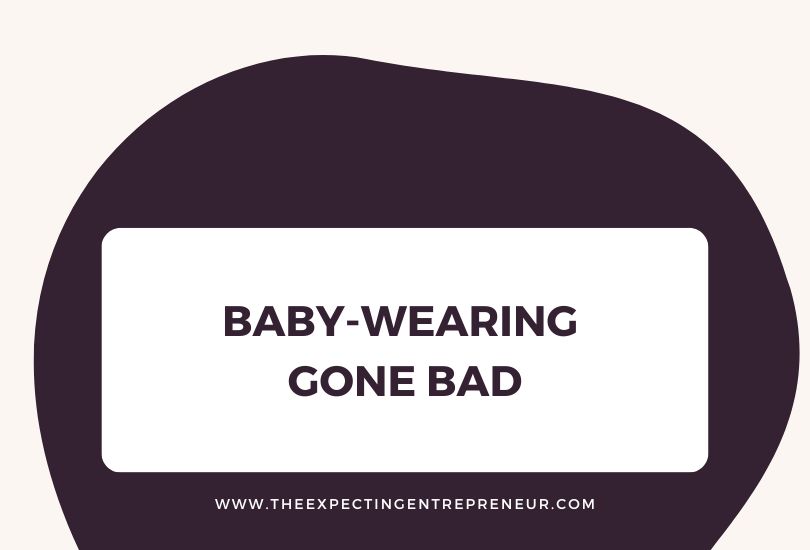Ana Acosta is sharing her Mama Story with us today.
Ana is the Jill-of-all-trades in my life. If I have a question (about anything) I can usually get a good answer from her or find out who has the best answer.
But what I love about her post is that, despite being an expert in so many things, Ana is sharing what it’s like to navigate the waters of motherhood when you are a complete novice.
When all your years of learning and expertise feel useless.
When you don’t have the answer.
When you miss being able to zip out of the door on a whim.
And yes, when you wish you could have just 2 hours of “me time”
Ana humbly shares her experience after 11 months of motherhood and conclusions about what this first year has meant for her.
The way my son was born was a total paradox
We planned a water birth.
We chose a OB/Gyn who had water birth experience and low C-section rates.
But my baby was sitting and did not want to turn around.
On the ultrasound he looked like a meditating Buddhist monk.
I spent hours on all fours, swimming, and doing moxibustion.
No results. The monk wanted to keep meditation.
After hours spent mourning the loss of my would-have-been water birth, Max was born by C – section.
My husband was present the whole time, and our request for skin-to-skin contact was respected.
Max went from my belly to my arms to my husband’s while they finished my surgery.
I was able to breastfeed him right away.
My husband worked from home the first three months postpartum, and the first few weeks flew by.
I would pump every afternoon, and when my husband finished working, he would take the bottles with my milk and look after Max.
While my husband watched Max, I would have “Mommy Time.”
I had always been physically active, and this continued during my recovery, thanks to my husband.
Once month postpartum, I started taking power vinyasa and ashtanga yoga three times a week, and tennis twice a week week.
I strengthened my back and arms, and could carry Max without any pain or discomfort.
But at 3 and a half months postpartum, everything changed, and I became a Boob With Legs.
Max did not want to take my milk from his bottle, rejected the pacifier, and attached himself to my breasts.
I felt like a cow.
I couldn’t leave him alone with his father longer than an hour.
I stopped going to my classes
My shoulders and low back started hurting.
My husband returned to his office.
I was exhausted.
I spent a lot of time alone.
I was at my lowest point and began to feel depressed.
Hearing Max cry stressed me out. I would grit my teeth, and tense my neck. The more I stressed, the more he cried.
Eventually, I decided to try a guided meditation to try and relax.
I listened to it in the shower and before going to sleep.
But it was still difficult.
I felt like I had no life.
No time for myself.
And with my family thousands of kilometers away in Argentina, it was tough.
When Max turned six months and began eating solids I started to recover those couple of hours a day to myself.
I could leave him with his father for two hours again.
I started walking 3 or 4 kilometers daily.
I tried to make it to my classes once or twice a week
I also started working again.
When Max turned 9 months old, my fears were of a different sort. I was anxious all the time and I’m still working on it.
In 2 seconds he could crawl from one place to another.
I felt he was safe only when he was with me.
It become very hard for me to leave him alone with his father.
The key for me has been sharing my fear with my partner, talking, and making agreements.
In all honestly, living in a country with limited social support, lots of corruption, and with my family far away has been stressful and scary for me.
My son, at 11 months old, has never been without his father or me.
I just don’t feel safe leaving him alone with other people or in a day care.
So I trust my instincts.
It’s exhausting of course but I feel lucky to have the opportunity to spend my day with him and work from home.
At times I am physically and emotionally drained but I love every second of life I can share with my son and am infinitely grateful to be his mom.
I think being a mom is the most amazing challenge a woman can have.
You increase your patience and tolerance.
You find the strength to care for your child even when it is physically challenging.
In those moments when I get to witness my child marvel at all the little things in life, it brings me immeasurable happiness. I am able to find some meaning in all the sleepless nights, and all the sacrifices.
My conclusions after 11 months of motherhood are pretty simple, but important:
- If you as a mom are not well, your child will not be well either, so take extra care of your mental, physical and emotional health.
- Stay alert to signs of depression or exhaustion. Exhaustion can cause accidents!
- It is always good to find a group of mothers with children of the same age as yours to create a support net.
- We must learn to trust in our partners: our child can’t be in better hands than theirs.
- It’s good to be careful with our children but not get obsessive.
- Prayer, trust and letting go are the keys.
- Positive energy attracts positive things
- You only have one body so take care of it, pamper it and don’t leave it at the end of your list of tasks.
Finally: Trust your instincts no matter what others think or tell you.
Ana Acosta is a nutritionist from Argentina, currently living, working, and raising her son Max in the Mexican Caribbean. After becoming a mom, Ana fused her experience as a clinician and researcher with her real-life education as a first time mom to create NutriMamá – a digital resource for Spanish-speaking mothers which seeks to reconcile scientific knowledge with maternal instincts when it comes to the topic of maternal-child nutrition, breastfeeding, and vegetarianism. As a self described “Rebel Nutritionist” Ana seeks to break down stigma and shift the dominant paradigm on maternal nutrition and infant feeding, based on her personal experience of stress associated with trying to follow professional advice at the expense of her own sanity. The blog therefore combines empirical evidence with practical strategies of learning about how to read your child, trust your intuition, and find the information you need to make decisions that are best for you and your child.
